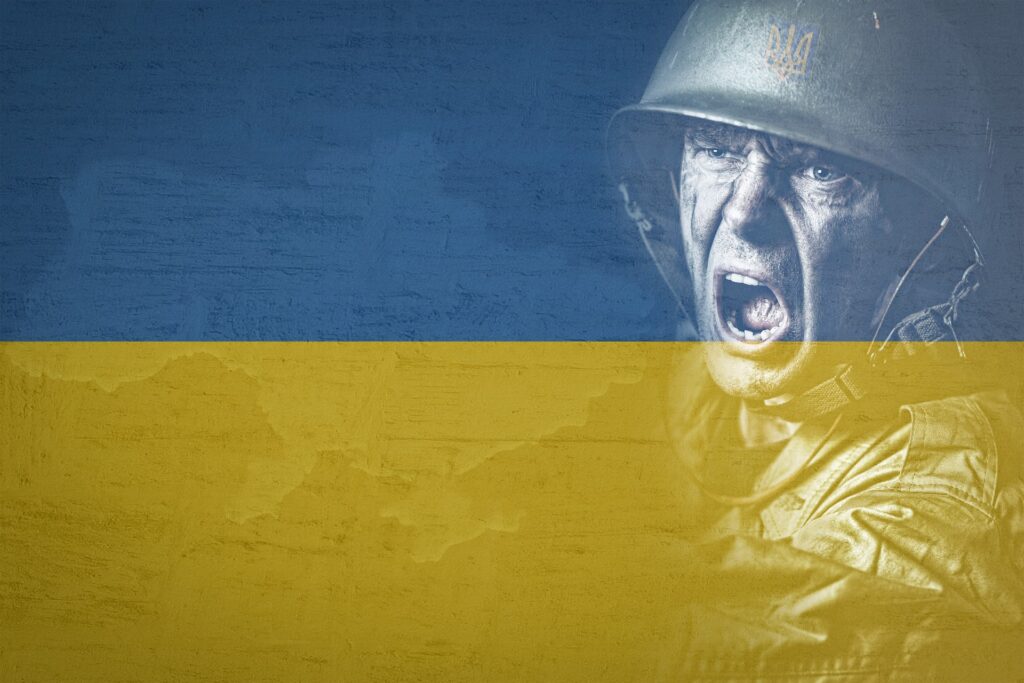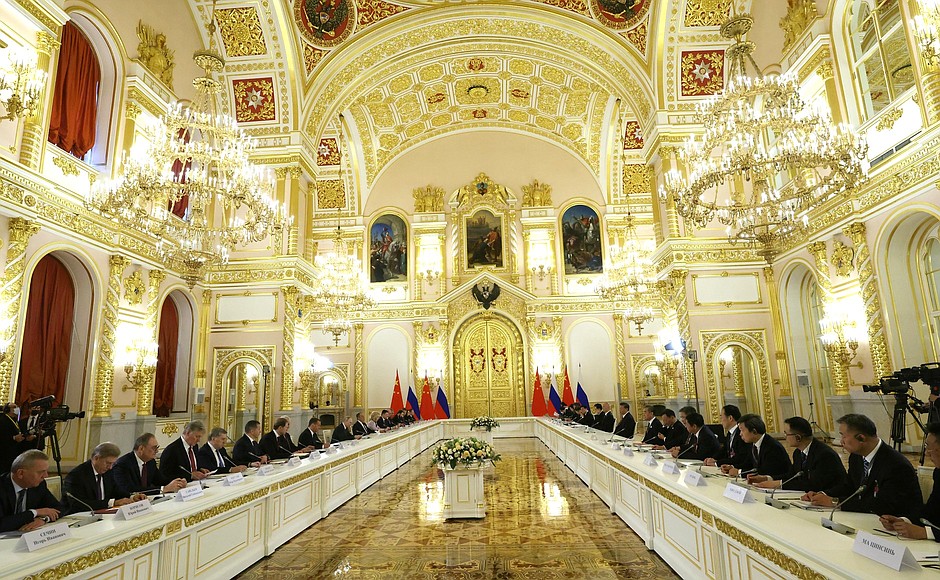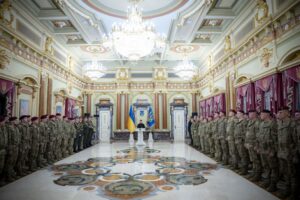
Xi Jinping says he looks forward to staying in close touch with Putin
Beijing/Moscow: China today hit back at the US Secretary of State Antony Blinken for his remarks that Chinese President Xi Jinping’s visit to Moscow showed that China, “instead of even condemning Russia, would rather provide diplomatic cover for Russia”.
Indirectly accusing the United States of creating the Ukraine crisis, Beijing retorted: “China is not responsible for creating the Ukraine crisis. We are not a party to the crisis and have not provided weapons to any party to the conflict. The US is in no position to point fingers at China, still less deflect blames on us.”
A Chinese foreign ministry spokesperson Wang Wenbin accused the US of being involved in “virtually all the conflicts and wars in Europe and indeed around the world with only a few exceptions”. Poohpoohing the USA’s claims that it wants to stop wars and defend peace, Wenbin said “the world has seen no US effort yet that is actually meant for peace, as it continues to pour weapons into the battlefield”.
It may be mentioned that soon after Xi landed in Moscow, Blinken had said in Washington: “That President Xi is travelling to Russia days after the International Criminal Court issued an arrest warrant for President Putin suggests that China feels no responsibility to hold the Kremlin accountable for the atrocities committed in Ukraine, and instead of even condemning them, it would rather provide diplomatic cover for Russia to continue to commit those very crimes”.
Referring to Blinken’s other remark that the “world should not be fooled by any tactical move by Russia – supported by China or any other country – to freeze the war [in Ukraine] on its own terms, Wenbin referred to a document released by China titled China’s Position on the Political Settlement of the Ukraine Crisis. He said the document elaborates China’s position in a comprehensive and systematic manner. “It offers 12 principles, including respecting the sovereignty of all countries, abandoning the Cold War mentality, ceasing hostilities, resuming peace talks and stopping unilateral sanctions. The core stance is to promote talks for peace. Parties concerned need to look into it intensively and view it in a rational manner,” Wenbin said. He asked the US to view objectively the efforts of China and the wider world to promote peace talks, rather than hold on to the Cold War mentality, “still less be a factor in the protraction and escalation of the conflict”.
Wenbin pointed out that after the outbreak of the Ukraine crisis, President Xi Jinping put forward four principles, called for joint efforts in four areas and shared three observations on Ukraine, “which point to the right way forward for deescalating the situation and promoting the political settlement of the Ukraine crisis”.
He said that just as Xi stressed, on the Ukraine issue voices for peace and rationality were building. “Most countries support easing tensions, stand for peace talks, and are against adding fuel to the fire,” he said, adding that China believes that the more difficulties there are, the greater the need to keep space for peace. “The more acute the problem is, the more important it is not to give up efforts for dialogue. China will continue to play a constructive role in promoting the political settlement of the Ukraine issue,” he said.
Stating that China was ready to work with the international community to continue to play a constructive part in the political settlement of the Ukraine crisis, he quipped at a press conference in Beijing today, “Perhaps you should ask the US side as well if they are willing to make peace talks happen”.
Meanwhile, in Moscow, Xi and Putin jointly addressed a press conference where the Chinese President said he looked forward to “staying in close touch with President Putin through various means to guide the steady and sustained growth of China-Russia relations”.

Earlier, both had “sincere, friendly and fruitful” talks on the bilateral ties and major regional and international issues of mutual interest and reached “new, important common understandings in many fields”.
Putin said he and Xi “remain in touch at all times”. He added, “Apart from bilateral summits, we meet on the sidelines of international events, and regularly talk to each other on the phone and by videoconference to discuss matters of mutual interest. This enables us to resolve all issues, even the most challenging ones, and to oversee all topical matters on the bilateral and international agenda”.
While noting that “changes unseen in a century are evolving faster and the international balance of power is undergoing a profound shift”, Xi said Russia and China should support each other on issues concerning each other’s core interests, and jointly resist the interference in internal affairs by external forces. “As permanent members of the UN Security Council and major countries in the world, China and Russia have natural responsibilities to make joint efforts to steer and promote global governance in a direction that meets the expectations of the international community and promote the building of a community with a shared future for mankind,” he said.
After the talks, President Xi and President Putin jointly signed a Joint Statement of the People’s Republic of China and the Russian Federation on Deepening the Comprehensive Strategic Partnership of Coordination for the New Era and a Joint Statement of the President of the People’s Republic of China and the President of the Russian Federation on Pre-2030 Development Plan on Priorities in China-Russia Economic Cooperation.
During the visit, the two sides also signed bilateral cooperation documents in such areas as agriculture, forestry, basic scientific and technological research, market regulation, and the media.
– global bihari bureau





